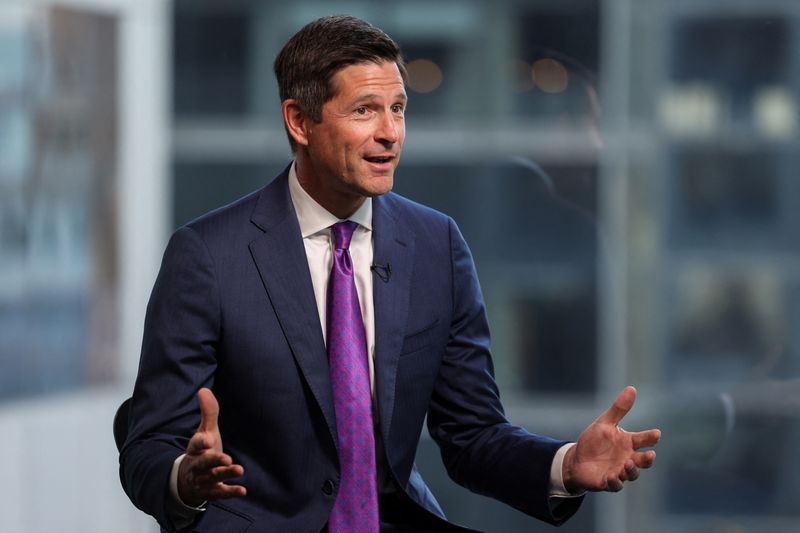
By Lananh Nguyen and Suzanne McGee
NEW YORK (Reuters) -Stock investors have cut risks by selling U.S. equities and buying bonds and non-U.S. shares in response to April’s turbulent markets, Charles Schwab CEO Rick Wurster told Reuters.
“We saw clients repositioning themselves, trimming their risk a little bit, making sure they were well-diversified” in response to economic uncertainty, Wurster said in a Reuters NEXT Newsmaker interview on Thursday.
Trading volumes, which hit record levels early in April following U.S. President Donald Trump’s announcement of tariffs, tapered off as the month progressed, but client engagement has remained high, Wurster said in a wide-ranging interview.
In April, 61% of clients polled by Schwab said they were feeling bearish, compared with only 32% in the first quarter.
“We set an all-time record” for calls and client logins during the heightened volatility, Wurster said. Nervous investors are asking what they should do, while active traders are seeking an edge.
Investors also have shown renewed interest in fixed income. In the past, “it was like trying to tell someone to eat their broccoli, and now broccoli and bonds are back,” he said.
Few clients made dramatic adjustments to their asset allocations in April but those whose portfolios included non-U.S. stocks, bonds and some commodities noted they benefited from that diversification.
Schwab’s poll showed investors’ top concern was the political landscape in Washington, followed by uncertainty over market volatility or a potential correction.
The Cboe Volatility Index – an options-based barometer of investor expectations for stock market swings – closed at a five-year high in early April, before paring gains.
Wurster took the helm at Schwab on January 1 after serving as its president for three years. The brokerage, based in Westlake, Texas, serves 36.9 million brokerage accounts and holds almost $10 trillion in client assets. Schwab also helps clients manage their wealth through a network of 15,000 investment advisors.
Its clients logged in a record 500 million times in the first quarter, when it saw a record 7.4 million trades a day, company data showed. That figure hit a record of 10.7 million average daily trades during the week of April 7.
Customer service lines also received hundreds of thousands of calls a day, and readership of Schwab’s research spiked 40% in the first quarter.
The amount of margin debt that U.S. broker-dealers extended to their customers dropped to $880.3 billion in March from $918.1 billion in February, data from industry group the Financial Industry Regulatory Authority showed. That is still well above year-earlier levels of $784.1 billion.

